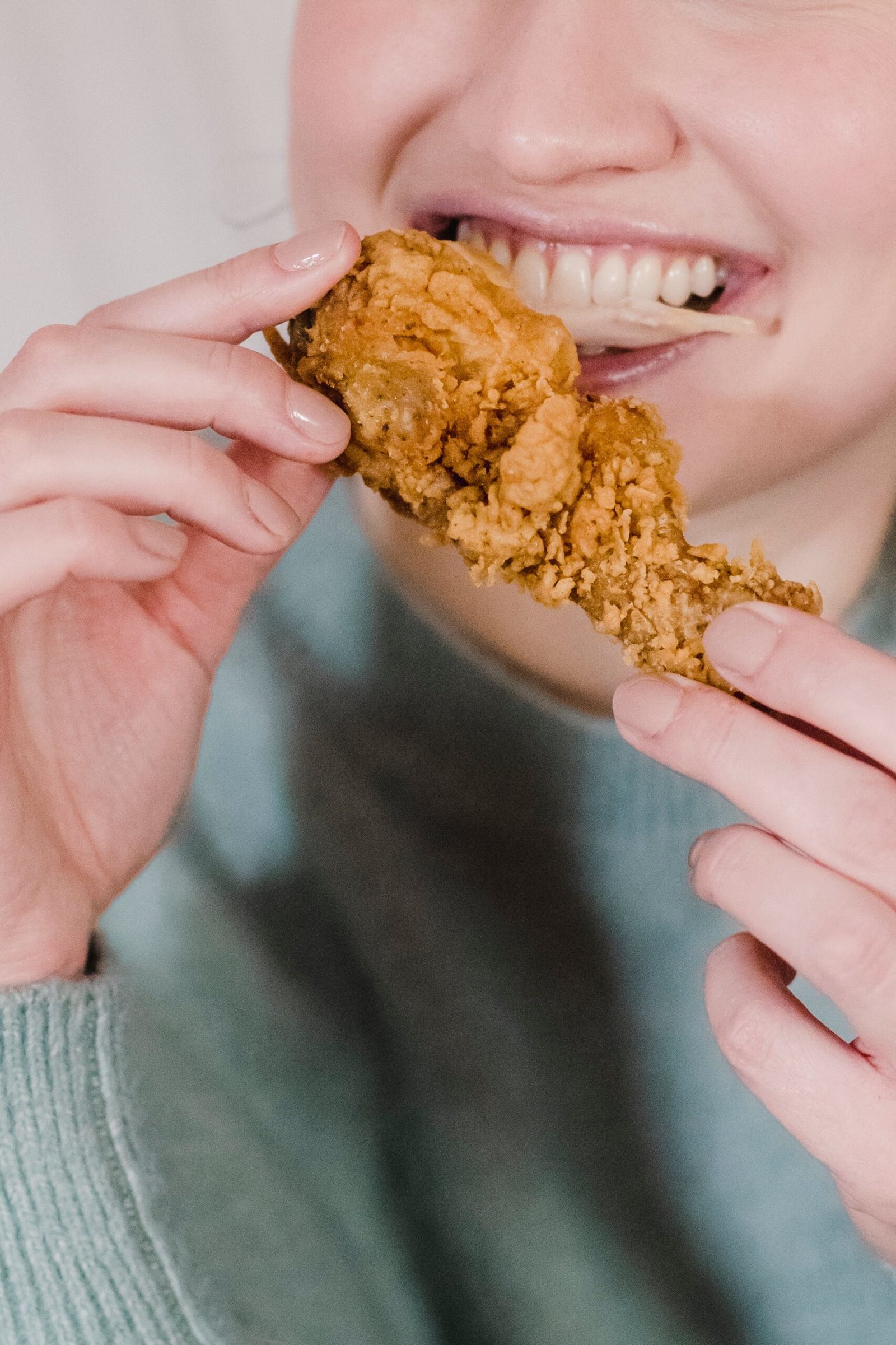
Imagine waking up in the morning with a sore and tender tip of your tongue, leaving you puzzled as to what could have caused it. Biting the tip of your tongue while sleeping is a surprisingly common occurrence that can be both frustrating and uncomfortable. In this article, we will explore the various factors that contribute to this peculiar phenomenon and provide you with some helpful remedies to prevent it from happening again. So, if you’ve ever found yourself in the awkward position of having a sore tongue after a night’s sleep, read on to discover the possible causes and solutions for this perplexing issue.

Common Causes for Biting the Tip of Your Tongue While Sleeping
Have you ever woken up in the morning with a sore and bitten tongue, wondering why this happened? Biting the tip of your tongue while sleeping can be a perplexing and uncomfortable experience. In this article, we will explore the various common causes that may lead to this issue. Understanding these causes can help you identify the underlying problem and seek appropriate treatment. So, let’s dive in and explore the potential reasons behind biting the tip of your tongue while sleeping.
Unconscious Teeth Grinding
One of the most common causes of inadvertently biting the tip of your tongue while asleep is unconscious teeth grinding, also known as bruxism. Bruxism can occur due to various factors, such as stress, anxiety, or misaligned teeth. People who grind their teeth during sleep often exhibit symptoms like jaw pain, damaged teeth, and headaches upon waking up. The vigorous movement of the jaw during teeth grinding can lead to unintentional biting of the tongue. If you suspect bruxism to be the reason behind your nocturnal tongue biting, it is essential to seek dental advice for proper diagnosis and treatment.
Nighttime Seizures
While often associated with epilepsy, seizures can also occur during sleep, leading to inadvertent biting of the tongue. Nocturnal seizures can be disruptive and frightening as they occur without the person’s awareness. During a seizure, the muscles in the body may contract and spasm involuntarily, including the tongue. This involuntary movement may cause the person to accidentally bite their tongue during sleep. If you suspect that nighttime seizures are the cause of your tongue biting, it is vital to consult with a healthcare professional for accurate diagnosis and appropriate seizure management.
Sleep Apnea
Sleep apnea, a sleep disorder characterized by interrupted breathing patterns during sleep, can also contribute to biting the tip of your tongue while sleeping. Individuals with sleep apnea often experience pauses in breathing, which can result in gasping for air or sudden awakening, potentially leading to accidental tongue biting. Sleep apnea is commonly associated with loud snoring and excessive daytime sleepiness. Seeking medical attention and treatment for sleep apnea can not only help address tongue biting but also improve overall sleep quality and prevent potential health complications associated with the disorder.
Restless Leg Syndrome
Restless Leg Syndrome (RLS) is a neurological disorder that causes discomfort and an irresistible urge to move the legs. People with RLS often experience unpleasant sensations in the legs, such as creeping, itching, or tingling, which worsen at night. These sensations can significantly disrupt sleep, leading to unintentional tongue biting. RLS-induced leg movements can be vigorous and involuntary, potentially causing accidental biting of the tongue. If you suspect RLS to be the cause of your tongue biting, consulting with a healthcare professional specializing in sleep disorders can aid in managing symptoms and improving sleep quality.
Misalignment of the Jaw
A misaligned jaw, often resulting from trauma, dental issues, or genetic factors, can influence the position of the tongue during sleep. When the jaw is not properly aligned, it can affect the natural resting position of the tongue, potentially leading to tongue biting during the night. Individuals with a misaligned jaw may experience additional symptoms, such as jaw pain, headaches, or difficulty chewing. If you suspect jaw misalignment as the cause of your tongue biting, seeking professional evaluation from a dentist or orthodontist is recommended to determine the best course of action.
Stress and Anxiety
It is no secret that stress and anxiety can impact our sleep, leading to various disruptions. Excessive stress and anxiety can cause muscle tension in the body, including the jaw and tongue. When the muscles in the tongue are tense, the likelihood of inadvertently biting the tip of the tongue increases during sleep. If you find yourself battling stress and anxiety, incorporating stress management techniques, such as relaxation exercises, mindfulness practices, or seeking professional help, can improve your overall well-being and potentially reduce tongue biting incidents.
Side Effects of Medications
Certain medications may have side effects that can contribute to tongue biting during sleep. For example, some drugs used to treat psychiatric conditions or epilepsy can cause involuntary movements, including tongue biting. It is essential to be aware of the potential side effects of any prescribed medications you are taking. If you suspect that your medications may be causing tongue biting, consulting with your healthcare provider for possible adjustments or alternative treatment options can help alleviate the issue.
Alcohol and Substance Abuse
The consumption of alcohol and the abuse of substances can have a detrimental effect on sleep patterns and overall health. Excessive alcohol consumption and substance abuse can lead to unconscious movements during sleep, potentially resulting in tongue injuries, including inadvertent biting. Addressing alcohol and substance abuse issues through counseling, support groups, or professional treatment centers can not only help improve sleep but also promote overall well-being.
Sleep Deprivation
Sleep deprivation can have numerous consequences on our health, and tongue biting may be one of them. When we do not get adequate sleep, our body’s ability to function properly can be compromised, leading to unintentional movements during sleep, including biting the tongue. Establishing a regular sleep routine, practicing good sleep hygiene, and ensuring that you get the recommended amount of sleep each night can help reduce the occurrence of tongue biting caused by sleep deprivation.
Abnormal Tongue Movement
In some cases, biting the tip of your tongue while sleeping may be due to abnormal movements of the tongue itself. Factors such as certain neurological conditions, muscular disorders, or even genetics can contribute to these abnormal movements, increasing the risk of tongue biting during sleep. If you suspect abnormal tongue movement to be the underlying cause of your tongue biting, consulting with a healthcare professional specializing in sleep disorders or neurology is advisable to determine the best approach for managing the issue.

Conclusion
Biting the tip of your tongue while sleeping may seem like a minor inconvenience, but it can indicate underlying issues that require attention. By exploring the various common causes discussed in this article – unconscious teeth grinding, nighttime seizures, sleep apnea, restless leg syndrome, misalignment of the jaw, stress and anxiety, side effects of medications, alcohol and substance abuse, sleep deprivation, and abnormal tongue movement – you can gain valuable insights into potential reasons behind your tongue biting and seek appropriate treatment. Remember, seeking professional advice is vital for an accurate diagnosis and developing an effective treatment plan tailored to your specific needs. So, prioritize your sleep health, identify the cause of your tongue biting, and take the necessary steps towards a peaceful and pain-free sleep.






